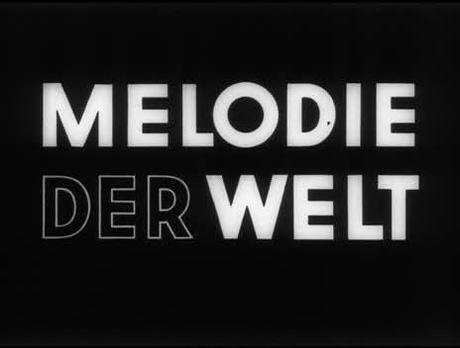
After Germany 1-0 Portugal, group stage.
Aesthetically, Germany is still pursuing in football the ideals of Walter Gropius and the Bauhaus—the elimination of unnecessary frills, the predilection for straight lines. Their passes aim at the precision of the butcher who cuts fresh red meat under the new bulbs of electricity and democracy. Their line-up is the result of a conscious geographical melting pot that stretches from Turkey and the Balkans to the ice and geysers of the North, passing through Poland. You wait for a match of the Deutschland team as you wait for ice cream in the summer on the Lake of Garda, or like the first time you heard Beethoven’s Quartet for Strings in C minor and you could not wait until it was Christmas again, with the candles and the amber beer in the glasses, and somebody would play a transcription at the piano for four hands. Even in this case, with soccer, you have to ask yourself whether the relation between the notes is rational or whether it is so shrouded in tonal and emotional values as to make any mathematical search fruitless and futile.
The impression is that Germany at the Euro 2012 has selected the men who could represent at best the chosen system of 4—2—3—1 rather than trying to strip all convention from art to fit the demand for honesty of expression on the pitch. It is remarkable that Russia and Germany, although in obviously different terms, both search the highest aesthetic quality in organicist terms. For them, artistic quality and modernity are inseparable from the issue of russkiy-ness and Deutsche-ness. The coach of Germany, in particular, for all his casualness, has a burning desire to “create” German footballing design because, according to him, no earlier pieces that sounded German were of the highest quality. He would disqualify even the individual genius if it did not fit his most serious compositions. These eternal rules of Deutschland in soccer have nothing to do with local tastes. They are universal, obeying only the necessity of nature—thus Schoenberg and Webern presented twelve-tone composition (Webern marveled at the fact that people could not easily accept such harmonic facts, which came directly from nature).
This way of reasoning becomes all the most urgent when you are confronted with the presence of Lukas Podolski in the starting eleven, or when you are comparing the respective benefits of playing with either Klose or Gomez as a lone striker. Clearly, Klose has a deeper understanding of the system as it is, or as it is supposed to be fleshed out in the organic interaction with the other teammates; his leading is that of a John Coltrane in the first Miles Davis quintet, while Gomez, who can be equally devastating in terms of scoring statistics, tends to hide for longer periods of time, in this resembling the new spiritual direction of the second Miles Davis quintet under the influence of Wayne Shorter as a leading saxophonist of the band.
As far as goal opportunities are concerned, not the actual header is what mattered against Portugal but the possibility of Mueller finally drifting to the side and darting the type of straight crosses that are the very embodiment of the German worldview: the response of the modern footballer to the shock of metropolitan life. (This, incidentally, was made possible only by the fact that Portugal started to commit more bodies up front and to see the match as a problem of distance between rows of players.) The episodes of extreme defending, with amazing blocks on both sides, drew from the bottomless, mystical conception of the soccer player as a selfless body, a devotional metaphor that is a response to the alienation of the self from society and it is to be found at the core of the philosophy of the Deutschland team. To contrast this ‘mystic’ view, Portugal might have done better by reverting earlier to what they can do better, putting playmakers in the hole with the immediate effect of dragging and forcing the opposite goalkeeper into action; it is, or would have been, a cosmopolitan answer to the problem of German trascendentalism. Portugal did very well the ultra-defensive and the winger-as-weapon stuff, but they lacked at transitioning between these two: they may still advance, at least in my opinion, but they better think of having Cristiano Ronaldo run at full speed as an asset rather than the tactical key. As for German modernism in football, it is currently floating, suitably perhaps, between eros and withdrawal, ecstatic experience and fulfillment. ♦

